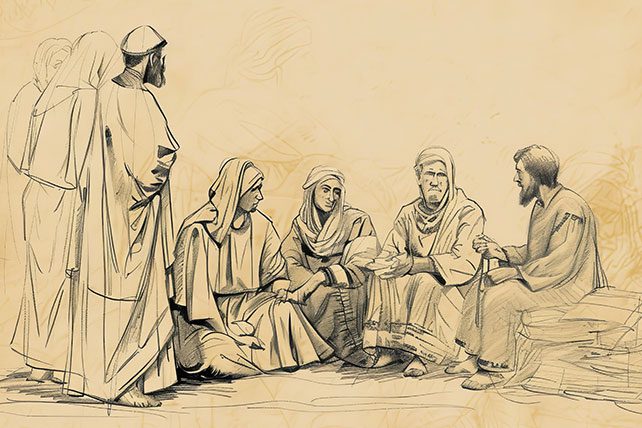5. They expected the miraculous
Healing, deliverance, and boldness through the Holy Spirit were hallmarks of early church practices (Acts 3:6–10; Acts 5:12–16). While some traditions downplay the miraculous today, many believers still testify to God’s power breaking through in profound ways. The church should not be afraid to ask for and expect God to act supernaturally, while always maintaining discernment and biblical grounding.
6. They endured persecution with joy
The early church faced intense opposition—yet they rejoiced when counted worthy to suffer for Christ (Acts 5:41). They understood that persecution was not a sign of failure but a confirmation of faithfulness. Modern believers in the West, where cultural favor has diminished, must be prepared to follow Christ boldly, even at a cost. Learning to face hardship without fear is a critical part of mature discipleship.
7. They elevated spiritual unity over social status
The church in Antioch was one of the first truly multi-ethnic congregations (Acts 13:1). Jews and Gentiles, rich and poor, men and women—all were united in Christ. Today’s divided world needs a church that embodies unity across lines of race, class, and nationality. The early church’s radical oneness shows what it means to be the body of Christ in full.
RELATED: How Grace Grows
8. They practiced accountability and discipline
From confronting hypocrisy in Acts 5 to appointing deacons to ensure fair treatment in Acts 6, the early church didn’t shy away from discipline and structure. Leaders were appointed not for status but to serve with integrity. The modern church can recover this commitment by fostering transparent leadership, mutual accountability, and a willingness to address sin with grace and truth.
9. They lived with urgency
The early Christians believed Jesus could return at any time. That belief shaped how they lived: with urgency, hope, and mission. Their lives were not about building comfort but about advancing the kingdom. The church today, surrounded by distraction and complacency, needs to rekindle that same eternal focus. Every decision, every sacrifice, and every act of love should be motivated by the reality of Christ’s return.
Why the early church still matters
Early church practices aren’t confined to the first century—they are enduring principles that still carry life-transforming power. While the world has changed dramatically, the core of Christian identity and mission remains the same. By recovering these ancient rhythms, the church can become more authentic, courageous, and Christ-centered.
In looking back we find a way forward. The early church wasn’t perfect, but it was pure in its devotion. That same devotion is still possible today—for churches willing to trade comfort for conviction and programs for presence.

